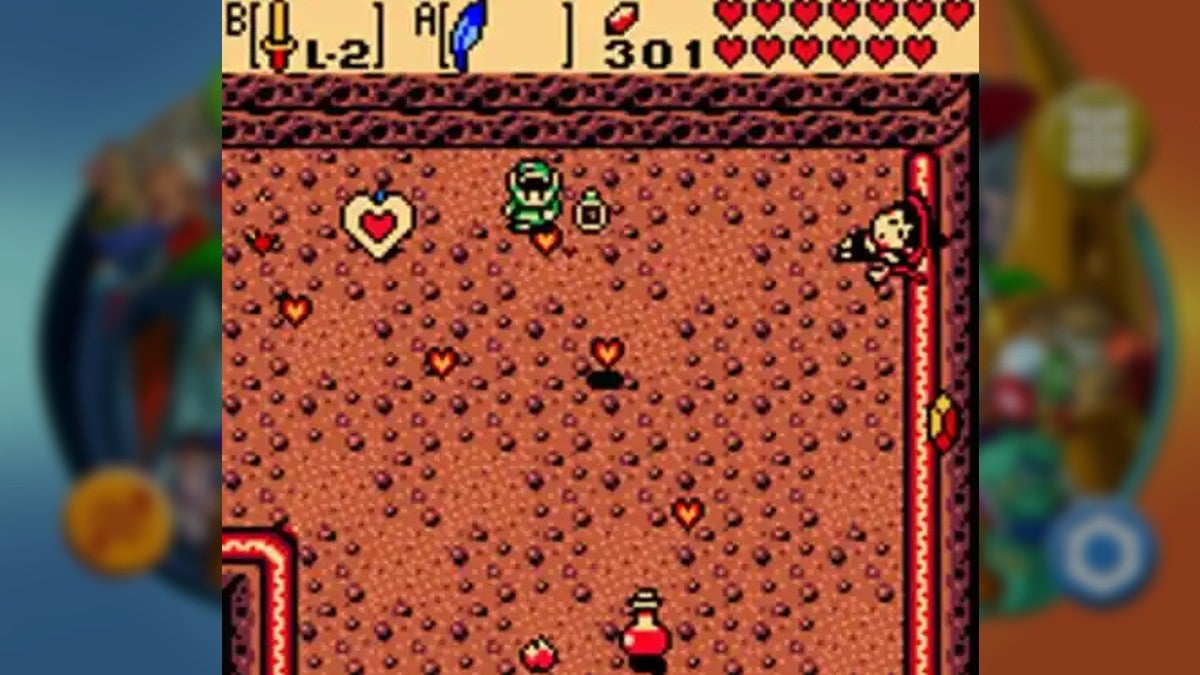![]() Key Takeaway
Key Takeaway
Video games of all kinds increase cognitive function, mental motivation, and information retention. Through these, gamers develop useful skills that aid them in learning better.
Media of all kinds can be useful tools for teaching. And many people tend to learn better from interactive media. As such, all video games are educational when the player decides to gain knowledge and skills from them. Yes, all of them.
Table Of Contents
The Cognitive Benefits of Playing Video Games

The brain is the control center for everything in our bodies. Whether it is a mental reflex or a physical movement, the brain is what causes it to happen. On top of that, learning to perceive the environment around you allows you to use your mental and physical strengths to accomplish your goals.
Many fast-paced games get accused of numbing your brain; people say that they don’t teach you anything. However, this is false. Action-packed games actually improve your mental capabilities in at least two important ways.
FPS Games Help Develop Spatial Reasoning and Attention to Detail
First-person shooter (FPS) is a genre all about ranged combat. To be successful in any level of an FPS game, you need to understand and use your environment to defeat your enemies. You also need to be able to keep track of where your foes are in this setting so that you can defeat them all.
For these reasons, FPS games (often classified as “action games” by researchers) can allow literally anyone to develop excellent spatial reasoning skills in a relatively short time. This means that those who play such games regularly are better at observing their environment—and details in general.
Proof of this can be found in a few studies, particularly one from 2013 conducted by the University of Rochester.
While this may seem more like a survival skill than one that’s useful for education, remember: attention to detail is crucial for learning. You can only learn something if you pay attention to the subject matter. And, the better you are at noticing details, the better you will be at remembering them.
Specific areas of study that benefit the most from such learning skills are science, technology, engineering, and mathematics. With the increase in technological advancement in the world, having people who are better at these areas of study will benefit their respective industries.
This will, in turn, benefit us all with more skilled personnel developing better technologies.
FPS Games Also Increase Mental Efficiency
The same study mentioned above showed FPS gamers also think more efficiently. Multiple fMRI tests were done to take a look into the brains of such players and found that they process information more quickly than non-gamers.
The mental reaction time in this test for gamers was 514 milliseconds while for non-gamers was 566 milliseconds. This means that those who play FPS games a lot can both notice more visual information as well as process it quicker.
Neuron pathways in the brain are a lot like natural paths through a forest. The ones that are used the most tend to be easier to travel. By repeatedly getting the brain to ingest and process high volumes of information, FPS gamers are essentially training their brains to be overall better at thinking quickly.
From an educational standpoint, this kind of mental skill can let people perform better in academic settings. For example, during an exam, FPS gamers are more likely to understand and answer questions more quickly.
In longer exams, this is useful as it will allow for more review time of previously-answered questions prior to the end of the exam. As such, their scores on that exam would most likely be higher due to better time management—which is a result of better mental efficiency.
Greater Motivation and Determination

Motivation is a driving force behind how we get things done. If you aren’t motivated to do things, you are less likely to accomplish tasks. This concept applies heavily to education.
Intelligence: Entity Theory vs Incremental Theory
At an early age, we as humans start to develop a sense of ourselves. One way we do this is by how we theorize our own intelligence. And, what way we do so depends on the feedback we get from our parents and teachers. Researchers at Northwestern University took a deep look into this.
An entity theory of intelligence will be adopted by children who are repeatedly told they are smart. As a result, such kids believe that they are innately smart and that intelligence is a personal trait. This leads to less effort toward self-improvement.
Conversely, an incremental theory of intelligence gets adopted by children who are told they do smart things. The focus on their efforts instead of their personal traits allows kids to see intelligence as something resulting from their actions. This more flexible interpretation of intellect leads to us putting more effort into becoming smarter.
Challenging video games, such as Elden Ring, give immediate feedback about your performance. You get punished for doing poorly but are rewarded for doing well. This type of gameplay causes players to adopt an incremental theory of intelligence. And this conditions players to try harder.
Putting more effort into things usually results in better outcomes. Whether it is working on a school project or beating a tough boss in Elden Ring, trying harder gets your farther.
Failure in Video Games Teaches New Behaviors
Rewarding effort is important in learning, but so is the punishment that comes with failure. While the latter in real life can be depressing, failure in video games doesn’t feel nearly as bad. As such, repeated failures in video games can teach us new behaviors with few consequences.
For example, let’s look at the Great Wyrm Theodorix boss fight in Elden Ring. This boss does way more damage with its attacks than it should. Even with the max amount of HP and the highest possible defensive stats, you will still get killed in one or two hits from this dragon-like monster.
This unfair aspect forces players to think of a way to beat this boss without directly confronting them in battle. In turn, the player will look around the area for any advantages. When they do, they’ll find a few giant land octopuses very close to Theodorix’s location.
For this fight, you’re supposed to lead Theodorix toward the land octopuses so that the tentacled beasts fight the boss for you. Furthermore, doing this trivializes the fight, as land octopuses can take attacks from Theodorix much better than you can as a squishy human. With three octopuses nearby, you’ll have a numerical advantage on your side as well.
Also, to be clear, there’s nothing in the game that tells you to do this. You’re just supposed to figure it out by dying to Theodorix a lot and exploring the area.
This is important to learn in real life as well. When you’re faced with impossible odds, it’s often better to think of an alternate approach as opposed to trying the same thing over and over.
Increased Information Retention

Trial and error is a method commonly used in video games. You’re expected to try things multiple times before you get any sort of reward. However, if you fail to remember previous outcomes, you can’t make progress.
Luck-Based Events Make Your Memory Better
Sometimes, special items aren’t guaranteed to come from a source. This source may be the only way to get a specific item, but will not give it to you every time. If you really want that item, you’ll need to remember what to do to get it.
In more complex games, this type of challenge is everywhere. Therefore, you need to remember many methods for getting multiple special items.
Video games like The Legend of Zelda: Oracle of Ages has a great example of this. In-game, the only way to get one of the Heart Pieces that increase your max health is to defeat Maple the Witch.
You need to knock her off of her broom and hope that she drops a Heart Piece. The odds of this happening are not guaranteed, so you may need to find the witch multiple times. If you get hit, you will drop some of your items, so you also need to avoid that.
For this single Heart Piece, you need to remember how Maple spawns to find her, how to knock her off her broom, and, most importantly, how to do so time and again due to luck-based factors.
Remembering the best method for defeating Maple requires you to retain lots of different information. This same skill is useful for remembering things when you study for tests. Being able to more effectively recall specific facts is a great trait to have in many situations.
Speedrunners Are Masters of Information Retention
Let’s ramp things up by looking at the peak of information retention: speedrunning. To get from point A to point B as efficiently as possible, speedrunners need to know exactly where things are. On top of that, they also need to do so as quickly as possible.
This is a challenging feat in normal gameplay, but it doesn’t end there. Many speedrunners use glitches to get through areas much faster than normal. These glitches have no in-game markers, so speedrunners need to remember the exact place and method to abuse a glitch.
Often, such tactics mean a speedrunner will need to flawlessly perform a series of complex tasks in a tiny area. The muscle and mental memory needed for this is very high.
You can’t phase through a wall and rocket yourself into the next area by getting lucky in most cases. You need to recall minuscule details and exploit them precisely, otherwise, you’ll lose precious time.
Due to the highly competitive nature of speedrunning, gamers are forced to perform at their best if they want the best results. While not every gamer is a speedrunner, all speedrunners are gamers. They exemplify the peak of information retention that is possible for anyone with enough determination.
As such, this level of mental skill is reachable by everyone. Imagine how well you can get students to remember lessons if you make them as fun as video games. You would be able to develop their minds in a way that would let them tackle any academic obstacle—and more.


